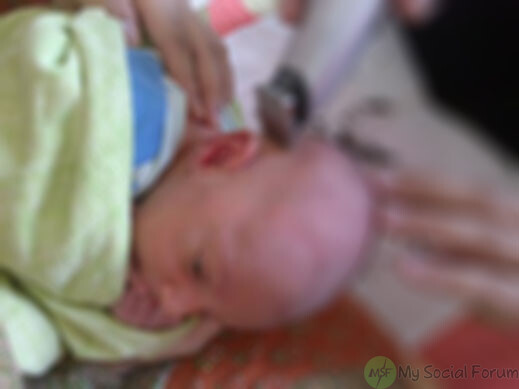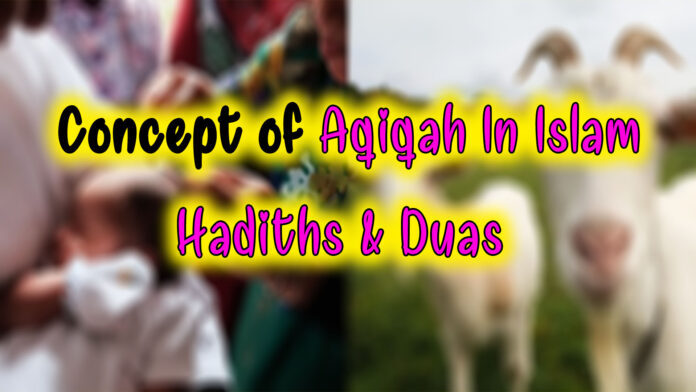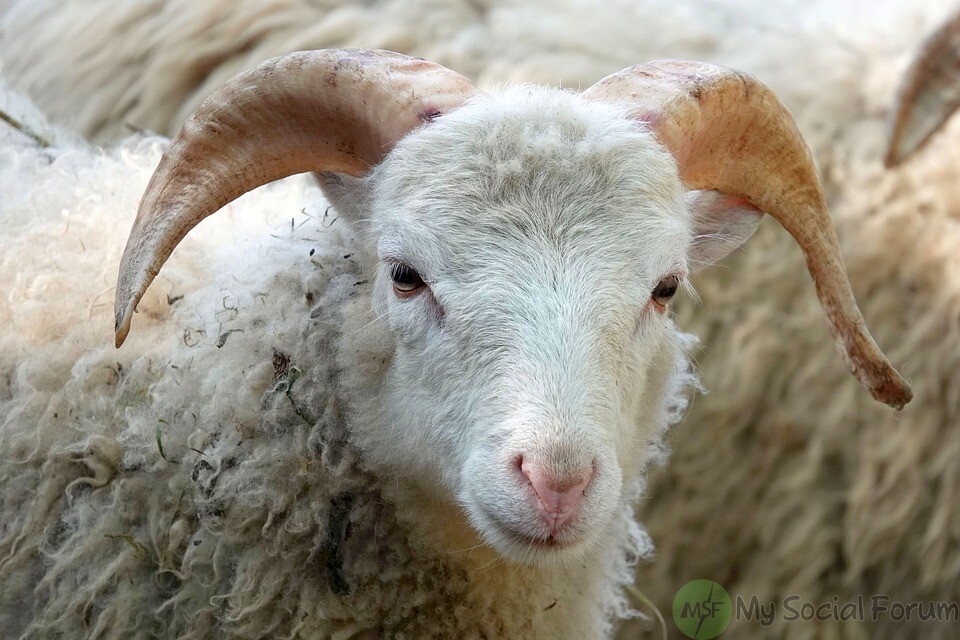In Islam aqiqah is the term that refers to the slaughtering of an animal on the birth of a child. According to some scholars aqiqah is a form of a Sadqah that is not compulsory.
When & How is Aqiqah performed?
The most favored procedure of aqiqah requires that it must be performed on the 7th day after the birth of the child. If due to some reason it can not be done on that time then on the 14th or the 21st day of the birth of the birth, it can also be done; however aqiqah can be exceed even from 21 days also.
Most of the scholars think that aqiqah can be performed until the child matures.if it prolonged any further than that it becomes irreverent.
Also Read: How To Register A Cybercrime Complaint In Pakistan, Step By Step Procedure
A few scholars stated in a Fatwa that aqiqah is never nullified but stays legitimate until the day one dies.
What is the purpose of aqiqah? (Sadqa)
Performance of aqiqah is a task that is highly praised of in the religion of Islam. The guardians or parents of the child is bestowed with the duty of performing aqiqah. Our beloved Prophet Muhammad (PBUH) and His great companions used to perform aqiqah as they became parents.
It is a known fact that the benefits of aqiqah are countless. One of them is the announcement of the arrival of the new baby. One more motive behind the execution of aqiqah is to invite all the friends, neighbors and more specifically all the family members to celebrate the occasion.
What are the kinds of animals that are to be slaughtered for aqiqah?
In The following hadith the Prophet Muhammad (PBUH) discusses about which animals are required for slaughtering.
Also Read: 7 Common Misconceptions about Muslim Woman
Narrated by Umm Kurz: The holly Prophet of Allah (Peace Be Upon Him) is quoted of saying that:
For when there is a boy born into a family, two sheep that look alike should be given in sacrifice as aqiqah while one sheep must be slaughtered in thanking Allah for the birth of a girl. (as stated in the book Sunan Abu Dawood Book 15, No. 2830) Source of the narration is Islam ru.
Some Hadith’s Regarding Aqiqah:
- Abdullah ibn Umar, may Allah all mighty be happy with him, would perform the aqiqah by sacrificing a sheep for each of his child. He would perform this on his own will and was not requested by any of his family members to provide a celebration for the newborn.
Malik has said that, ‘There is a matter in which there does not exist a disagreement among us ulema that is regarding the celebration of the newborn. The matter is that whoever observes aqiqah he does so for his own child by sacrificing sheep for every child regardless of female or male. - Celebrating the arrival of the newborn is not only obligatory, in fact it is a highly recommended act.’ The Source of the narration is: al-Muwaṭṭa’ 2187
As Narrated by Samurah ibn Jundub: “The Prophet (Peace Be Upon Him) has said: two sheep for the aqiqah of a new born boy. Sacrifice should be given for him on the seventh day after his birth, his head to be shaved. - When Qatadah was asked was asked a question about how smearing with blood should be done? He replied that when the throat or the head of the animal is cut (sacrifice specified for aqiqah), a few hair is taken and placed on its you may take a few hair of it, place them on its veins, and at the middle of the infant’s head, to allow the blood flow on infant’s hair like a thread. Then the baby’s head is to be washed and hair to be shaved off.
- Abu Dawud while narrating the phrase yudamma or “is smeared with blood” there arises a misunderstanding Hammam’s part.
Abu Dawud said: Hammam is opposed as he narrates the words “is smeared with blood.” This is a misunderstanding of Hammam. As originally it’s narrated with the sentence “he is to be named (yusamma) yet Hammam has narrated it as “smeared with blood” or (yudamma). - Abu Dawud believes that this tradition is not observed.” As claimed in the book of Sunan Abu Dawood Book No:9, 2831. Narrated Samurah b. Jundub:
“The Apostle of Allah (peace_be_upon_him) said: Along with a boy there is an ‘aqiqahh, so shed blood on his behalf, and remove injury from him.” Sunan Abu Dawood Book No: 9, 2833. - Abdullah ibn Amr ibn al-‘As has narrated: “The holy Apostle of Allah (may peace and blessings be upon him) was once inquired about the performance of aqiqahh. He kindly replied: Allah does not approve the breaking of uquq or ties, He even dislikes the word. And He has said that if there is a child born to someone and he wishes to offer execute a sacrifice on the behalf of the new born, he should offer two same looking sheep for a male child and one on behalf of the female.
The following Dua or Phrase is recited first for a baby boy and then for a baby girl:
- “In the Name of Allah and through Allah, it is the(sadqa sacrifice) ‘aqīqah for…. (take the or call out the name of the baby boy), who is the son of …. (father’s name): child [the flesh of the ‘aqīqah] for his flesh blood, its bone for the child’s bone, its hair is for the hair of the baby boy’s hair, its skin for the baby’s skin. O dear Allah, may it be a measure of protection of the family of the prophet Muhammad,may ever lasting peace and blessings be be upon him and those of his family.”
- Chanting first Bi-’smi ’llāhi along with wa-bi ’llāh Allāhumma hādhihi ‘aqīqatun ‘anthat is the name of the new born boy) Ibne …. (Father’s name) lahmu-hābi-lahmi-hi wa-damu-hābii-daami-hi wa-‘azmu-hābi-‘azmi-hii wa-sha’ruu-hāa bisha’ri-hi wa-jiildu-hābi-jildi-h. Allāahumma’j΄al-hā waqāaan liāli Muhammadin ‘alayhi waāli-hi s-salām.
In the Name of Allah and through Allah, this is the performance of ‘aqīqa of…..(baby girl’s name),the daughter of …. ( father’s name): as its flesh is being given for her’s, its blood is being sacrificed for the blood of the baby girl, its bones are being slaughtered for the girl’s bones, its hair is being given for her hair, its skin is for her’s. O dear God, may it be a source of protection of the family of Your beloved Muhammad,may eternal peace be sent upon Him and His family members. - Bii-’smi ’llāhi waabi-llāh. Allāahumma hādhihii ‘aaqīqatun ‘an ….(say name of the new born girl) Ibnati . . . (say the name of the father of the girl) lahmuu-hābi-lahmi-hā wa-damu-hābi-dami-hāwa- ‘azmu-hābi- ‘azmi-hā wa-sha΄ru-hābi-sha΄ri-hā wa-jildu- hābi-jildi-hā. Allāhmma’ j΄al-hā waqā’an li-āli Muhammadin ‘alay-hi wa-āli-hi s-salām.
Then you must shave the hair of the new born baby. Weighing the cut hair of the baby in silver, and distributing the value to those who are needy or orphans is said to be a great omen. Animals may be sacrificed during or after shaving of the head.

The following prayer is to be read at the time of the animal sacrifice.
“In the name of all mighty Allah, by the all mighty Allah,all praises be to only Allah, Allah is the ever greatest, faith is in only Allah, thanks to the last messenger of Allah (all the blessings of Allah be on Him and His great companions) for safeguarding Allah’s command, we pay gratitude for all His sustenance, and all His awareness of our merits us Ahl ul Bayt by only His grace.”
If the child is male, recite the following:
“O Allah, verily You have given us a son. Only you know what You have bestowed upon us and all that has been granted by only you, and (You alone are aware about everything) whatever You create. So please accept (our offering that is being offered) in accordance to fulfill Your command along with observing the great traditions of Your final prophet and messenger (blessings and mercy of Allah be on Him and on His companions), and please keep away the most accursed Satan from us all. This blood is pouring out for Your sake only (a.s.) there is no partner to share (it) with You, O my Allah, praise be to Allah, the Lord of the worlds. O my Allah, this meat (instead of) his meat, this blood (instead of) his blood, these bones (instead of) his bones., this hair (instead of) his hair, this skin (instead of) baby’s skin (are being offered to only You), so O my dear Allah, accept this (sacrifice) instead of the sacrifice of the child’s name.”
Bissmilllaahi wa bellaahi Allaahumma haaad’eheie a’qeeqatunn a’n (child and father’s names) lah’muuhaa bilah’mihee (bilah’mihaaa) wa damuhaa bidamihee (bidamihaa) wa a’z’muhaa bi-a’z’mihee (bia’z’mihaa) allaahummaj-a’lhaa wiqaa -an lahoo (laahaaa) bi-aali muh’ammadin s’allallaahu a’layhi wa aaliheie wa sallam bismillaaahi waa billAahiE waAlh’amdu lillAaahiE wallaahu akbar eemaanan billaahi wa Sanaa-an a’laa rasoolillaahi s’allallaahu a’layhi wa aalihee wal a’s’matu li-amrihee wash shukru lirizqihee wal ma-rifatu bifaz lihee a’laynaa ahlil bayti allaahummma innkaa wahaabta lanaaa d’akaran wa anta a’-lamu bimaa wahabta wa minka maaa a’t’ayta wa kullamaa s’ana -ta fataqabbaalhu minaa a’laa sunnatika wa sunnati nabiyyika wa rasoolika s’allallaahu a’layhi wa aalihee wakh-sa a’nnash shayt’aanar rajeema laka safaktud dimaa-a laa shareeka laka allaahumma wal h’amdu lillaahi rabbil a’alameen allaahumma lah’muhaaa biilah’mihee waa damuhaa bidamihee wa a’z’muhaa bi-a’z’mihee wa sha’ruhaa bisha – rihee wa jilduhaa bijildihee allaahummaja’lhu fidaaaan.
“Dear gathering, I’m free from that what you associate; I now turn my face to Him who has split the heavens along with the earths, being a true Muslim and a believer, and not among the polytheists. My prayers, piety, living, and dying are for Allah, the sole Lord of the Worlds. O Allah from You to You, in the Name of Allah; Allah is the greatest. O Allah, bless prophet Muhammad, and accept it from … (child’s name). Son/daughter of …… (name of the father).”
yā qowmi innī barīe’un mim-mā tushrikūuna innīe wajjahtu wajhīya li-’lladhiī fatara ssamāwātii wa-l-arda hanīfam musliman, wa-mā anā mina l-mushrikīna. inna sulāt-ī wa nusuki wamahyaāyā wamamaāt-īli-’llāhi rabbil-‘alamīna sharīka la-h. wa-bi dhālika umirtu wa-anā mina l-muslimīna allāhumma min-ka wa-la-kabi-’smi’llāhi wa-’llāhu akabar. allāhumma salli ‘alā muhammadin wa-āli muhammadin wa-taqabbal min (name of child) ibni (for a boy) / binti (for a girl)…. (name of father) According to Imam Jafar bin Muhammad as Sadiq you can read either Dua’s while slaughtering the animal.
For a baby girl you may recite:
“In the name of Allah and by Allah, this aqiqahh (sheep being slaughtered) is of (the name of the child and her father); its flesh is (instead of) flesh of the respective baby, its blood (instead of) baby’s blood, its bones are (instead of) baby’s bones being offered to You. O dear Allah please accept it as that by which the baby may be preserved and may be protected, in the name of the children that of the prophet Muhammad, blessings be upon him of Allah and upon his children.”
To summarize, aqiqah has a unique and very significant place in Islam. With some conditions, one may perform aqiqah. However, those who are not able to do so due to any reason can observe this ibada at a stage of life, as is claimed by some scholars.
But there are, some scholars who believe that aqiqah can only be performed until the age of puberty of the concerned child.


































